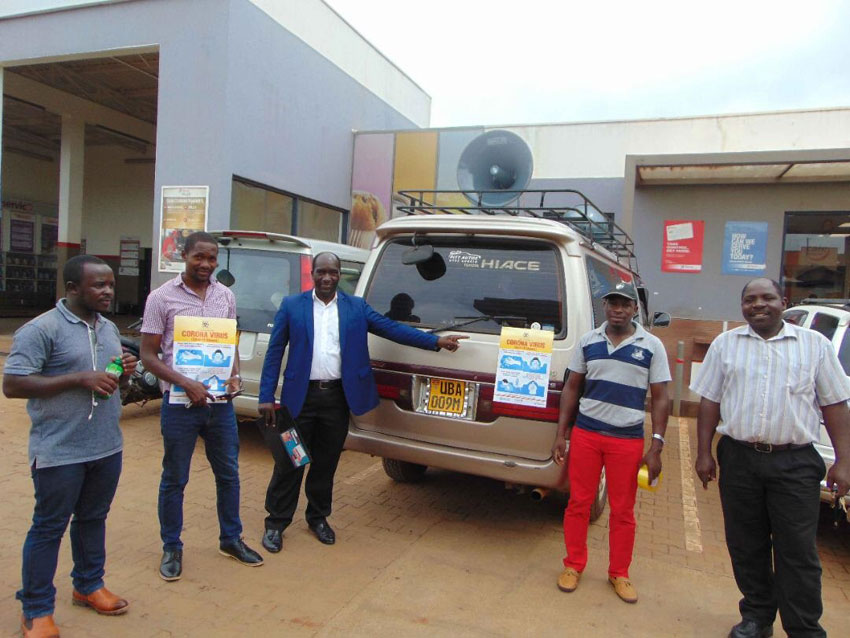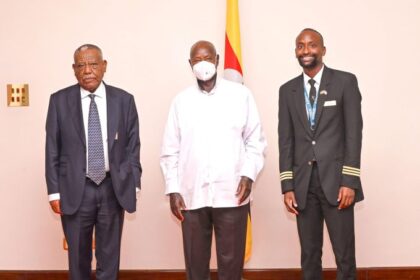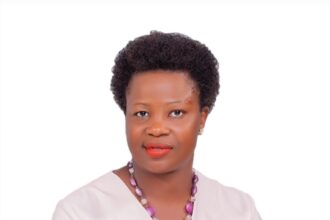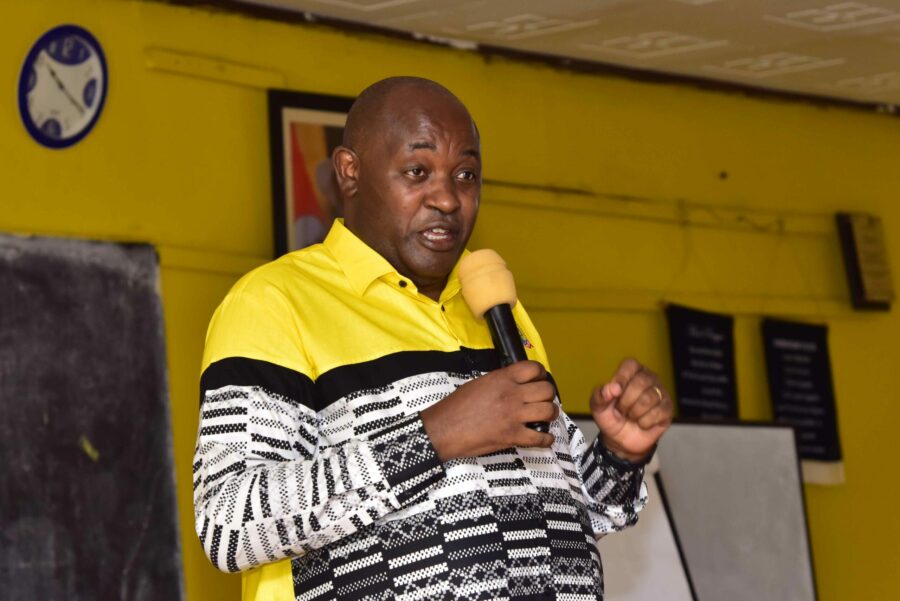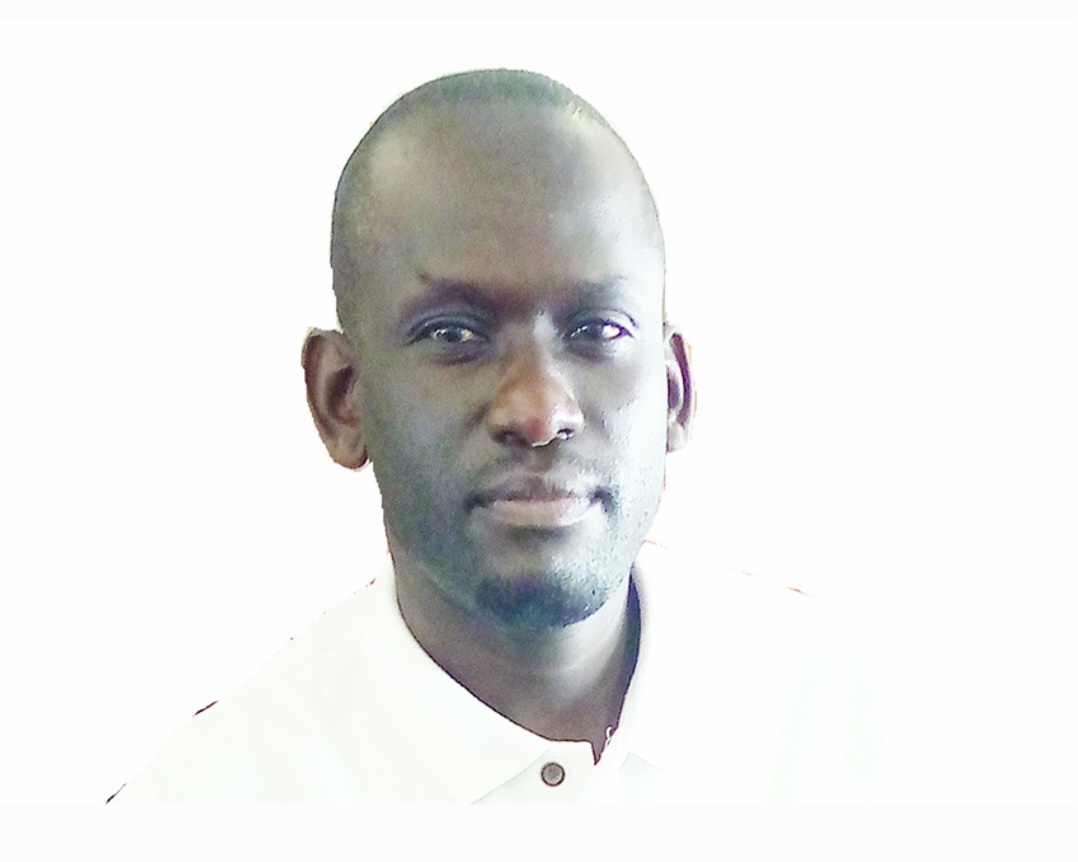Deep in rural Mukono district, a group of four young people drive from village to village talking about COVID-19 pandemic. However, they find the folks there living their lives like there is no danger in the country.
With 55 cases already confirmed as positive for COVID-19, Uganda joined the rest of the world where strong measures were put in place to control the spread of the virus. Among others was a freeze on activities running in the country, and populations told to stay at home.

With national task-force overseeing the implementation of the measures at country level, every district headed by the Residence District Commissioner, was asked to build their own team to sensitize locals and comply with preventive measures.
In Mukono, the multi-sector taskforce was set up and the civil society is represented by Kibaya Robert, head of NGO forum in the district. It is Mr Kibaya who delegated KIDA to sensitizing different parts of Mukono south constituency where they operate from.
Tony Kabuye, Henry Nsubuga, Osman Mubiru Ganaafa and Grace Nanozi, run a civil society organization called Katosi Inter-community Development Alliance (KIDA).

“When we were put on Mukono taskforce, we were given information to share with the public from the ministry of health,” says Tony Kabuye, a co-founder of KIDA.
The group moves in two vehicles, with a loud speaker on one of the vans, driving through villages, park in trading centres and talk about Covid-19 and measures to defeat it including; Keeping social distance, wash your hands with soap, don’t touch sensitive body parts, avoid public places and Stay at home.
The vans play songs done by Uganda’s top musicians Bobi Wine and Bebe Cool about Covid-19 pandemic.
When they arrive in a trading centre, they attract the attention of the folks by playing the music. They do not allow people to gather, but listen from wherever they are. The task-force team starts by teaching them how to observe social distance before they can tell them more about the Covid19 pandemic before they have found many people not respecting social distance measure.
Prior to COVID19 days, KIDA was building school facilities for children in vulnerable communities and families in rural Mukono. They also run skilling programs for young women in Katosi town council.
KIDA, have however changed their voice, to educating these masses about the dangers of COVID19 and how to avoid it.
I sat down with Henry Nsubuga, the co-founder of KIDA, in Mukono town recently to tell me about the sensitization work they are engaged in recently.
He told me that Mukono District COVID-19 taskforce entrusted them with this assignment as part of civil society contribution.
“In the beginning, we wanted to donate fuel to the task force. However, they told us to use that fuel to traverse the parts of Mukono sensitizing populations.” Nsubuga says.
He said they have traversed the sub counties of Nakisunga and Mpatta, as well as town councils of Kisoga-Ntenjeru and Katosi.
“The assignment has bigger as we realize we have to go deeper in the villages where life appear normal for most of these people.
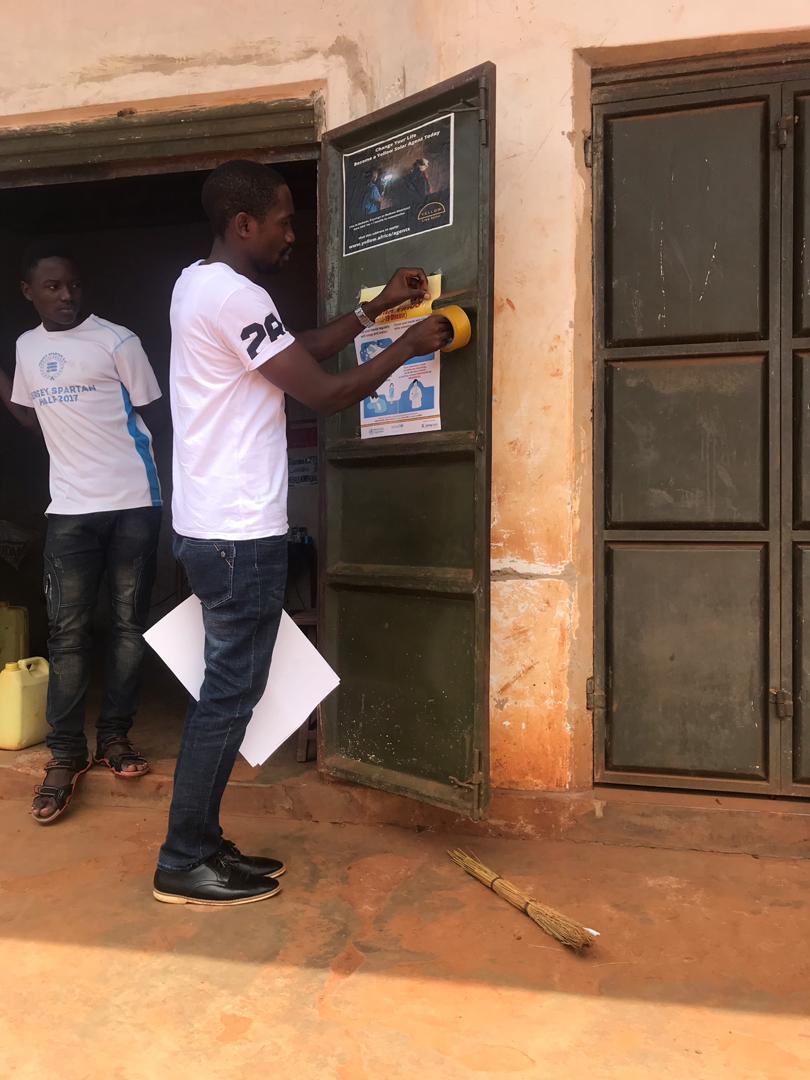
“We donated 70 litres of fuel, but, we now use sh700,000 a week on fuel alone,” says Nsubuga, who is pleased with the results they are registering.
“My observation is people are still lacking information on this serious pandemic,” he says. “We still find people in villages playing ludo, drinking in bars or chatting in groups.”
When the district task force entrusted KIDA with sensitization, they were asked to go and assess if the guidelines offered by the president, Mr Yoweri Museveni and the ministry of health, are being followed.
“We discovered that in many villages there is little compliance. It is about 30%.
“Lack of correct information kills,” Nsubuga emphasizes.
Nsubuga narrates that in Seeta Nazigo trading centre, they did not even find water for washing hands, nor, soap as is the case in several other townships.
“Yet chapatti stalls go on with their business uninterrupted,” he recalls.
They say the issues of social distancing and curfew are things of big towns like Mukono and Kampala.
However, because most shop keepers are unable to come to Mukono to re-stock their shops, many shops have run out of supplies.
When people saw the sensitization vans, the feedback they gave KIDA is that they want “food”. And indeed some, especially the elderly, children and people living with disabilities, are most affected.
“We wish we could donate food. But the government refused private citizens from donating food. So, we shall have to get authorization from the leaders,” the KIDA co-founder says.
People in villages mostly following national debate on their radios. They have no access to televisions and internet where most of the information flows.
“They have heard the government is giving out food, and demand their share,” Nsubuga says, and are often accused of eating their tax payers money given to members of parliament amounting to sh 20 million each in Covid19 allowances.
“People in villages are very upset with the move when they are hungry themselves. They believe MPs are selfish.”
This is a challenge because many people has started to believe COVID-19 is a political issue, and not an emergency health problem.”
However, KIDA has registered some success. “We have had people inviting us to their homes to show them how they can improve their sanitation.
Nsubuga says that in Katente B village, the chairman invited them to speak to his council, which information he says they are going to pass on to the village members and enforce compliance.
Do you have a story in your community or an opinion to share with us: Email us at Submit an Article




